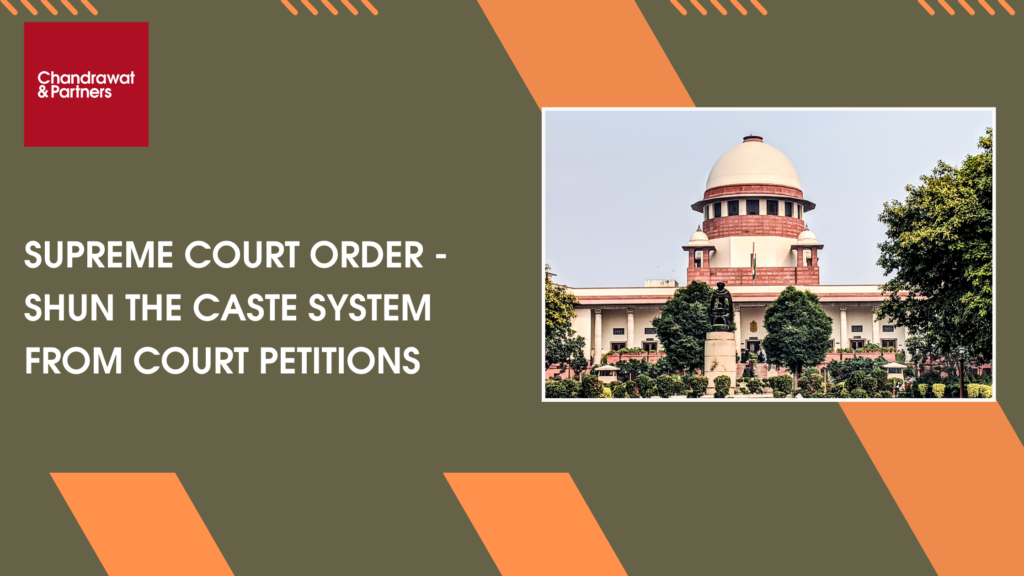Share :
Introduction
An order has been passed by The Hon’ble Supreme Court of India to eliminate the caste or religion of the parties from the court documents while hearing the transfer petition of a family dispute between husband and wife pending before the principal judge of family court. The Court noted that the memo of parties mentioned the caste of the litigants and expressed deep dissatisfaction with this practice.
CASE ANALYSIS
In the case titled “Kishan Kumar Vs. Shama Sharma” while hearing a transfer petition under Section 25 of the Code of Civil Procedure, 1908, filed by the petitioner-wife for transferring a petition for restitution of conjugal rights filed by the respondent-husband under Section 9 of the Hindu Marriage Act, 1955, the Division Bench of Hima Kohli and Ahsanuddin Amanullah, JJ. noted that the caste of both parties was mentioned in the memo of the parties.
The apex court was of the opinion that there is no reason for mentioning the caste or religion of any litigant before any of the courts and such a practice is to be shunned and must be ceased forthwith.
In October 2023, bench led by Justice Abhay SA. Oka had also found it unacceptable of the practice followed by certain trial courts and High Court to mention the caste or religion of a party.
Further, a circular was also issued by Hon’ble Supreme Court dated 7th February 2024 (F.No. 3/Judl./2024) stating to remove the caste or religion of parties of a petition/proceeding filed before the court, irrespective of whether any such details have been furnished before the lower courts. It also asked the members of bar bodies like the Supreme Court Bar Association (“SCBA”) and Supreme Court Advocates on Record Association (“SCAORA”) to take note of the directions
STATEMENT MADE BY THE BENCH OF JUSTICE HIMA KOHLI AND JUSTICE AHSANUDDIN AMANULLAH –
The Hon’ble Supreme Court said they do not believe that any litigant’s caste or religion should be brought up in the apex Court or subordinate courts. It is deemed appropriate to pass a general order directing that going forward, the caste or religion of parties shall not be mentioned in the memo of parties of a petition/proceeding filed before the Court, regardless of whether any such details have been furnished before the subordinate courts. This practice is to be shunned and must end immediately.
LEGAL PRECEDENTS
In the case titled Bishan vs State Of Rajasthan, the Rajasthan High Court ordered that caste should not be mentioned in arrest memos and bail bonds. Justice Sanjeev Prakash Sharma noted in his order that neither the CrPC nor the Constitution provides that a person be identified by his caste. The bench directed that no caste be written in arrest memos and bail bonds except for Scheduled Castes / Scheduled Tribes cases arising out of the Scheduled Castes and the Scheduled Tribes (Prevention of Atrocities) Act, 1989.
CONCLUSION
The order by the Hon’ble Supreme Court reflects a firm commitment to upholding the principles of equality and non-discrimination stated in the Constitution of India which underscores the judiciary as the role of guardian of the Constitution and Fundamental Rights where justice is inclined without regard to social or religious identities. The Hon’ble Supreme Court recognized the need for consistency and uniformity in legal practice across the country promoting fairness and equality in the administration of justice
For more information or queries, please email us at
enquiries@chandrawatpartners.com




